第30章
COTTON MATHER
Accordingly, the next evening, Grandfather resumed the history of his beloved chair.
"Master Ezekiel Cheever," said he, "died in 1707, after having taught school about seventy years. It would require a pretty good scholar in arithmetic to tell how many stripes he had inflicted, and how many birch rods he had worn out, during all that time, in his fatherly tenderness for his pupils. Almost all the great men of that period, and for many years back, had been whipped into eminence by Master Cheever. Moreover, he had written a Latin Accidence, which was used in schools more than half a century after his death; so that the good old man, even in his grave, was still the cause of trouble and stripes to idle schoolboys."Grandfather proceeded to say, that, when Master Cheever died, he bequeathed the chair to the most learned man that was educated at his school, or that had ever been born in America. This was the renowned Cotton Mather, minister of the Old North Church in Boston.
"And author of the Magnalia, Grandfather, which we sometimes see you reading," said Laurence.
"Yes, Laurence," replied Grandfather. "The Magnalia is a strange, pedantic history, in which true events and real personages move before the reader with the dreamy aspect which they wore in Cotton Mather's singular mind. This huge volume, however, was written and published before our chair came into his possession. But, as he was the author of more books than there are days in the year, we may conclude that he wrote a great deal while sitting in this chair.""I am tired of these schoolmasters and learned men," said Charley. "Iwish some stirring man, that knew how to do something in the world, like Sir William Phips, would sit in the chair.""Such men seldom have leisure to sit quietly in a chair," said Grandfather. "We must make the best of such people as we have."As Cotton Mather was a very distinguished man, Grandfather took some pains to give the children a lively conception of his character. Over the door of his library were painted these words, BE SHORT,--as a warning to visitors that they must not do the world so much harm as needlessly to interrupt this great man's wonderful labors. On entering the room you would probably behold it crowded, and piled, and heaped with books. There were huge, ponderous folios, and quartos, and little duodecimos, in English, Latin, Greek, Hebrew, Chaldaic, and all other languages that either originated at the confusion of Babel or have since come into use.
All these books, no doubt, were tossed about in confusion, thus forming a visible emblem of the manner in which their contents were crowded into Cotton Mather's brain. And in the middle of the room stood table, on which, besides printed volumes, were strewn manuscript sermons, historical tracts, and political pamphlets, all written in such a queer, blind, crabbed, fantastical hand, that a writing-master would have gone raving mad at the sight of them. By this table stood Grandfather's chair, which seemed to have contracted an air of deep erudition, as if its cushion were stuffed with Latin, Greek, and Hebrew, and other hard matters.
In this chair, from one year's end to another, sat that prodigious bookworm, Cotton Mather, sometimes devouring a great book, and sometimes scribbling one as big. In Grandfather's younger days there used to be a wax figure of him in one of the Boston museums, representing a solemn, dark-visaged person, in a minister's black gown, and with a black-letter volume before him.
"It is difficult, my children," observed Grandfather, "to make you understand such a character as Cotton Mather's, in whom there was so much good, and yet so many failings and frailties. Undoubtedly he was a pious man. Often he kept fasts; and once, for three whole days, he allowed himself not a morsel of food, but spent the time in prayer and religious meditation. Many a live-long night did he watch and pray.
These fasts and vigils made him meagre and haggard, and probably caused him to appear as if he hardly belonged to the world.""Was not the witchcraft delusion partly caused by Cotton Mather?"inquired Laurence.